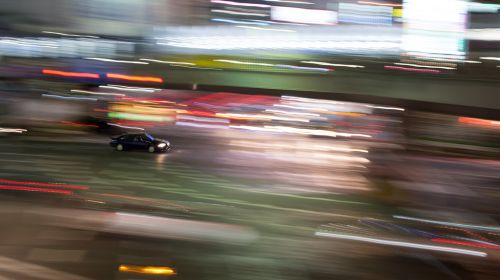
Imagine a searchable database that would enable police or federal agents to instantly track everywhere you’ve ever driven in your car, like a “Google search” of your location over a period of months or even years. According to a law enforcement data manager speaking at a 2010 National Institute of Justice , that’s where the government is headed.
A driver location “Google search” is not available to police today because there aren’t enough license plate readers to ensure total information awareness about our driving habits. But if the federal government’s of the surveillance camera boom over the past ten years is any indication of where we are headed with license plate readers—and we have evidence to suggest a similar process is unfolding—we will get there soon enough.
The police are preparing for it, too. Dale Stockton, Program Manager of the “Road Runner” project at the Automated Regional Justice Information System in San Diego spoke on a panel on license readers at the 2010 conference and explained to police and prosecutors in attendance how best to share license plate data. Mind you, he was talking about the location information of people never accused of any crime.
Aware that a “centralized national giant bucket of license plate reader data…probably wouldn’t stand the court of public opinion,” he suggested a number of backdoor alternatives that would grant the government the same power to spy on us retroactively and with frightening precision. No such centralized data system exists and probably won’t, he said, but he described other paths towards total information awareness regarding license plate data, among them a “regional sharing capability” that in 2010 already existed in San Diego and L.A. Another option is informal data sharing between police departments, Stockton said, encouraging “anyone involved in LPR in the interim to establish an e-mail group and do an e-mail blast when you have a vehicle of interest. This is working in the southwest area of the United States,” he said.
But the regional data sharing and the informal e-mail systems Stockton described pale in comparison to the real endgame, what he called “something akin to a Google.” Not “a storage unit” per se—because remember, such a centralized database “wouldn’t stand the court of public opinion”—but a “pointer system” that would enable agencies to store their own data locally while making it readily available to police departments and federal agencies nationwide at the click of a button.
Central storage of data vs. distributed storage indexed via a pointer system? When it comes to privacy, that’s a distinction without a difference.
As license plate scanners proliferate nationwide, boring questions regarding data retention and sharing take on great importance. Unfortunately, it appears as if the government is taking us in precisely the wrong direction, from the top, down.
We’ve been making a lot of noise about location tracking of late. License plate readers rank high among the technologies that are threatening our privacy with respect to our travel patterns. Where we go says a lot about who we are, and law enforcement agencies nationwide are increasingly obtaining detailed information about where we go without any judicial oversight or reason to believe we are up to no good. Stockton says we have nothing to worry about with respect to license plate reader data and privacy, that that’s all “hocus pocus.” But he’s wrong.
We must ensure license plate readers do not become license plate trackers.
Law enforcement’s advancement of the position that agencies should be able to access data willy-nilly from other departments illustrates precisely why we’ve been worried about this technology. Perhaps we shouldn’t be surprised to read such a position on the Department of Justice’s website; after all, it’s the same DOJ that told a court last week that Americans have in our location information as it pertains to our cellphones.
We disagree, and we intend to make sure that a license plate data system “akin to a Google” doesn’t take shape. Nothing less than our freedom on the open road is at stake.

